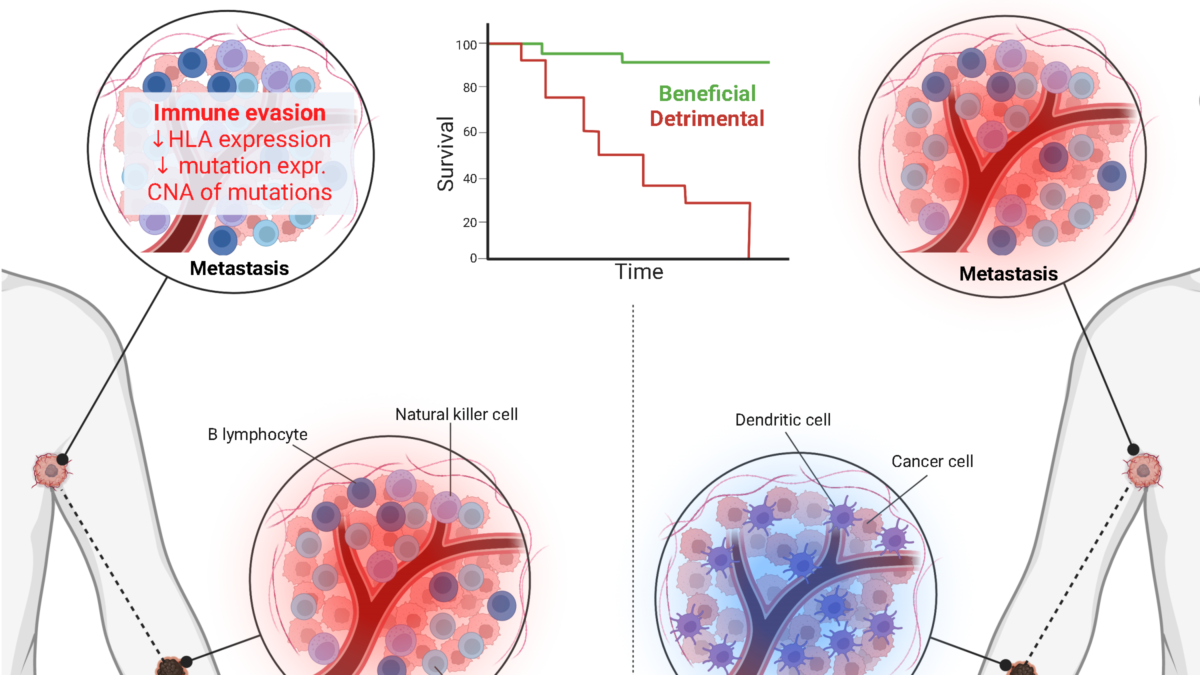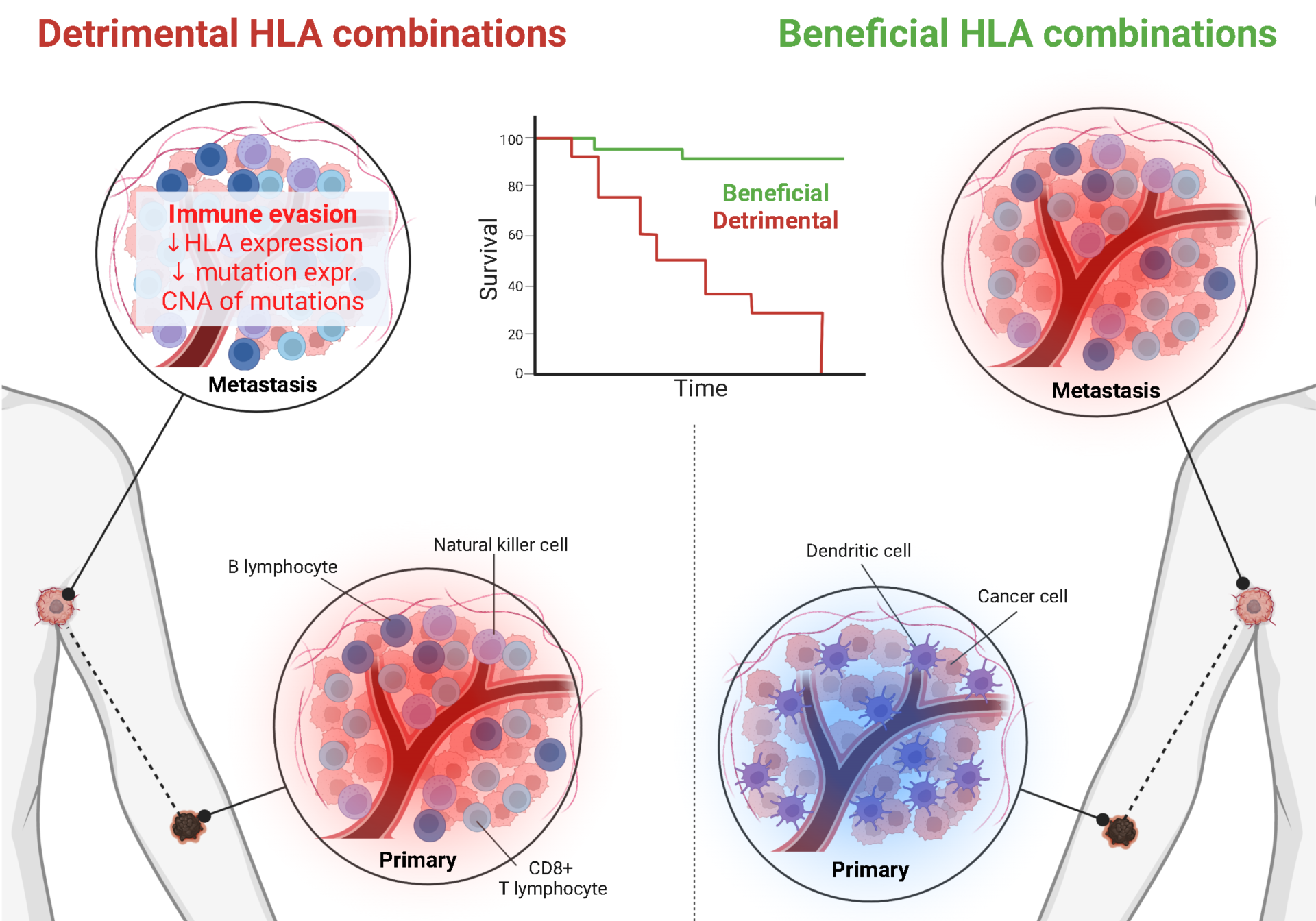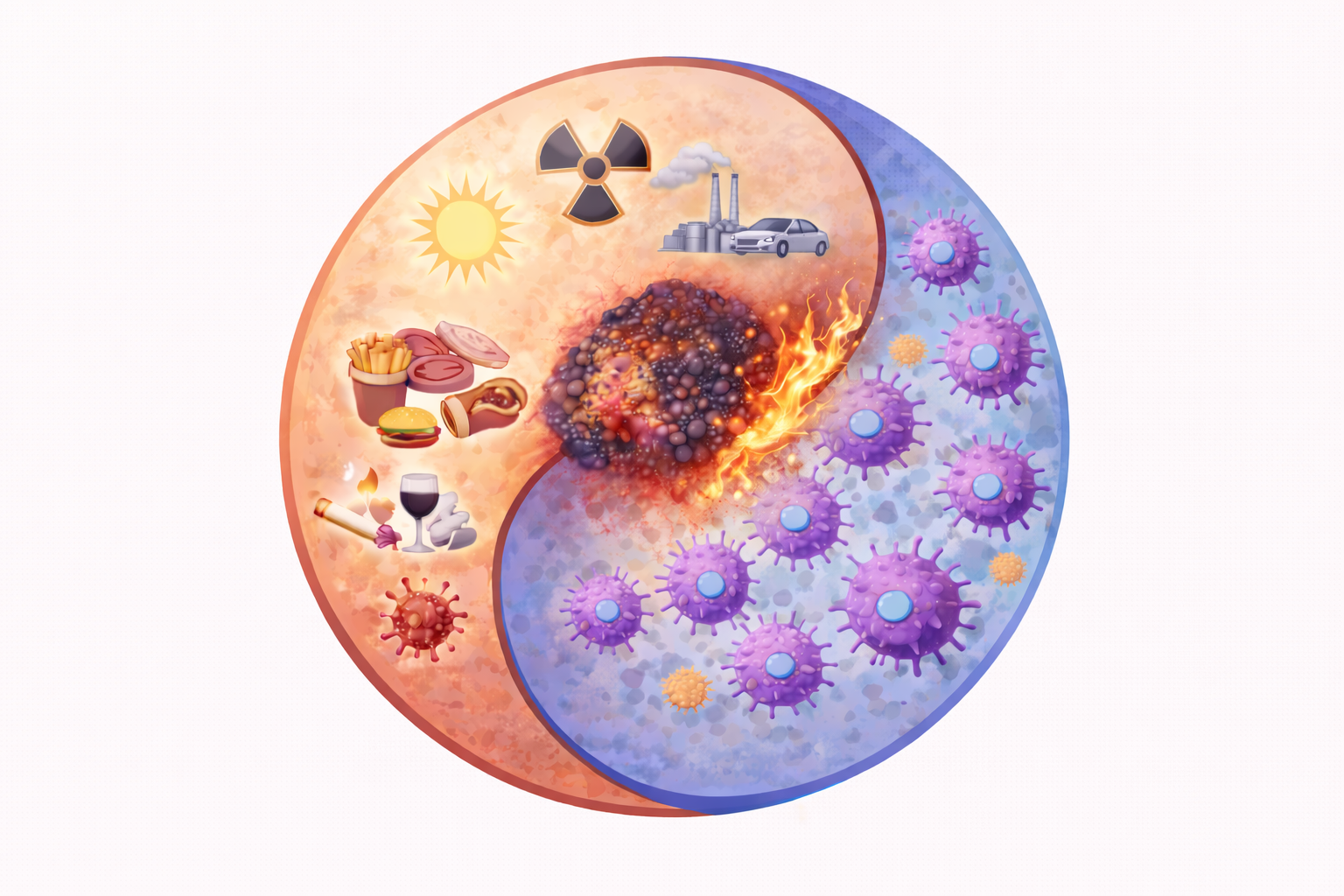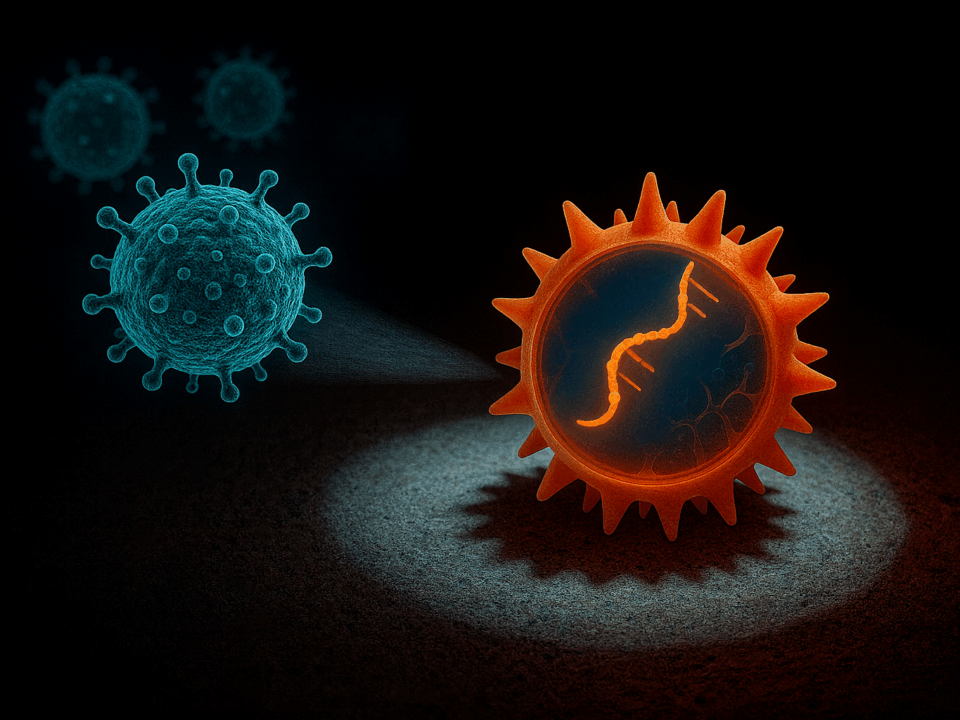
Benjamin Tamás Papp, Anna Tácia Fülöp, Gergő Mihály Balogh, Balázs Koncz, Dóra Spekhardt, Máté Manczinger
The presentation of mutated cancer peptides to T cells by human leukocyte antigen (HLA) class I and II molecules is necessary for antitumor immune response. Both classes are diverse and the variants have distinct peptide-binding specificities. HLA class I diversity was suggested to influence antitumor immunity, however, the findings are controversial. We examined the joint effect of the two HLA classes in melanoma patients. Numerous combinations were associated with better or worse survival in metastatic melanoma patients receiving immune checkpoint blockade (ICB) immunotherapy and they also predicted the survival of ICB-naive patients. Carrying detrimental and beneficial combinations had markedly different effects in primary and metastatic samples. Detrimental combinations were associated with cytotoxic immune response in primary tumors, while metastases showed signs of immune evasion and ineffective antitumor immunity. On the contrary, beneficial combinations were associated with an active cytotoxic immune response only in metastatic samples. HLA class I and II variants in both detrimental and beneficial combinations presented melanoma-associated mutations effectively. However, detrimental combinations were more likely to present immunogenic ones. Our results provide evidence of the joint effect of HLA class I and II variants on antitumor immunity. They potentially influence the strength and timing of antitumor immune response with implications on response to therapy and patient survival.





